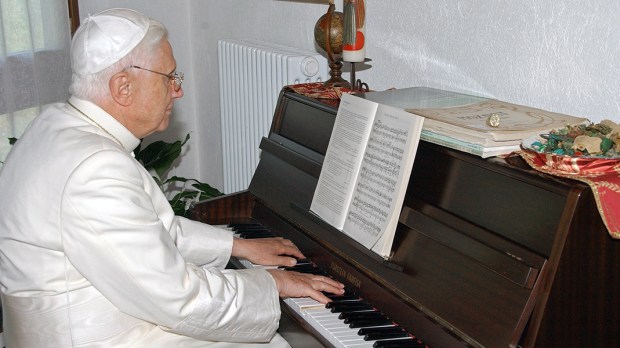On the feast of Pope St. Gregory the Great, we remember the rich history of sacred music, from Gregorian chant onward.
In this regard, perhaps nothing higher could be said of music than a reflection offered by Benedict XVI in 2015 when he received an honorary doctorate from the John Paul II Pontifical University of Krakow and from the Academy of Music of Krakow, Poland.
The German pope, a great lover of music and himself a pianist, said he considers that the great accomplishments of Western music, rooted in the experience of faith, shows forth the truth of Christianity. He is suggesting this music is its own type of apologetics.

Read more:
What is apologetics in the Catholic Church?
Take a look:
At this point I wish to express a thought which in recent times has taken hold of me, that is, how the diverse cultures and religions enter more in relation between themselves. In the realm of diverse cultures and religions, a great literature is present, a great architecture, great paintings, and great sculptures. And in each there is also music. However, in no other cultural sphere is there a music of equal greatness than of that born in the realm of the Christian faith: from Palestrina to Bach, to Händel, all the way to Mozart, Beethoven, and Bruckner. Western music is something unique, having no equal in other cultures. And this—it seems to me—should make us think. Certainly, Western music greatly surpasses the religious and ecclesial sphere. However, it finds its deepest origin in the liturgy, in the encounter with God. In Bach, for whom the glory of God represents the end of all music, this is totally evident. The great and pure response of Western music came about in the encounter with the God who, in the liturgy, makes himself present among us in Christ Jesus. This music, for me, demonstrates the truth of Christianity.
Read more:
The beautiful Gregorian chant ‘Cibavit eos’

